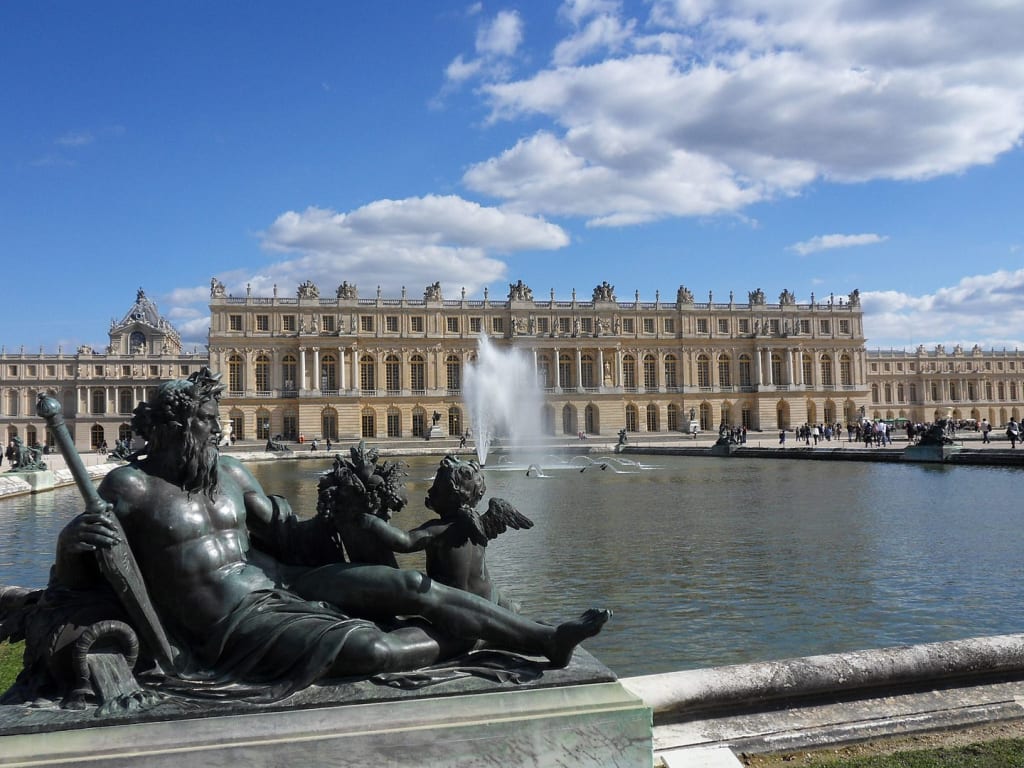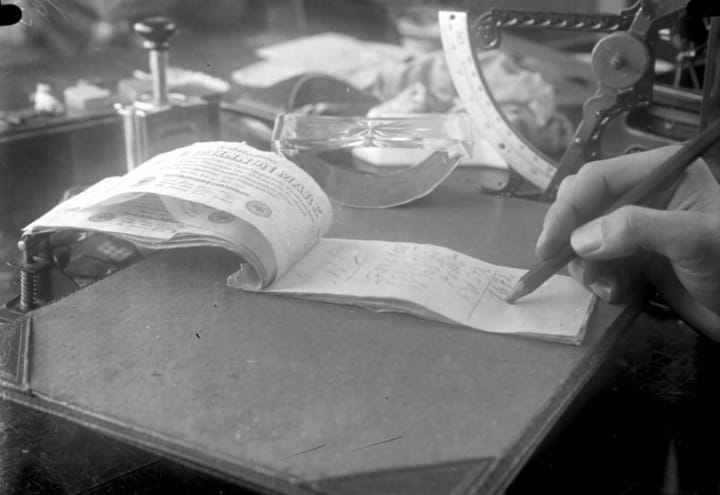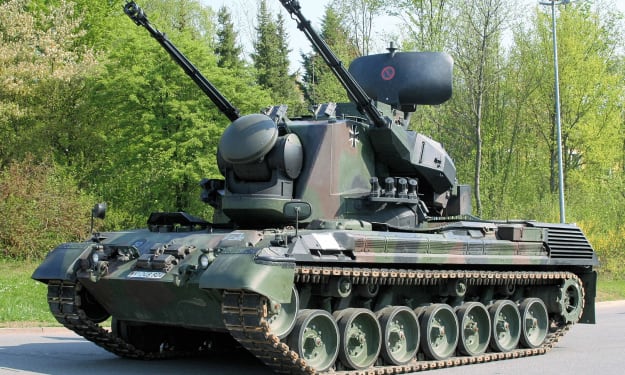No Treaty of Versailles for the Ukraine War
The Treaty led to World War 2 - don't repeat the mistakes

Right now we're embroiled in the war which Russia started in Ukraine and there's a saying doing the rounds that 'all wars end by negotiation'.
That's not correct.
World War II ended with an unconditional surrender by Germany on May 8, 1945. The unconditional surrender was signed by representatives of the German armed forces in a schoolhouse in Reims, France, in the presence of representatives from the Allied powers, including the United States, Great Britain, and the Soviet Union.
Japan, the other major Axis Power, did not sign an unconditional surrender until September 2, 1945, aboard the USS Missouri in Tokyo Bay. This surrender was accepted by the Allied powers represented by General Douglas MacArthur and it marked the end of World War II.
But World War I was a negotiated surrender and like it or not it caused World War II.
The geopolitical map of most of the world after WWII had been determined at the Yalta Conference in early 1945. Unlike Roosevelt and Stalin, Churchill was keen to see Germany revive as a successful state because unless that were the case then the reasons for WW2 would would be refreshed. This led inter alia to the division of Europe with Germany surviving as a political entity (albeit divided).
So unless Russia is completely defeated and surrenders unconditionally (totally inconceivable) then we will be faced with some sort of treaty situation. Perhaps even a Korean scenario.
The Korean war has never technically ended and 70 years later there is still considerable regional unease, with North Korea now a nuclear power. In 1953 a Korean armistice agreement was signed by the USSR, China, North Korea and the United Nations Command (led by the United States), but not signed South Korea. So a state of war still formally exists between North Korea and South Korea.
World War 1
Germany did not surrender unconditionally at the end of World War I.
It was a negotiated surrender. The armistice that ended the war was signed on November 11, 1918, and it was based on the Fourteen Points, a set of principles outlined by US President Woodrow Wilson. The armistice was essentially a ceasefire, and it did not involve a formal surrender or the acceptance of unconditional terms by Germany. Instead, the armistice set out the conditions under which the fighting would stop and the terms under which the Allied powers and Germany would begin peace negotiations.
The Treaty of Versailles
The Treaty of Versailles peace treaty was signed on June 28, 1919, between the Allied powers and Germany, officially ending World War I. The treaty was negotiated at the Paris Peace Conference, which began in January 1919, and was attended by representatives from 32 countries, including the United States, Great Britain, France, and Italy. The treaty was intended to establish a lasting peace between the nations of Europe and to hold Germany responsible for the damage caused by the war.
Some of the main terms of the treaty include:
- War Guilt Clause: Germany was held solely responsible for the outbreak of World War I and was required to accept full responsibility for the damage caused by the war.
- Reparations: Germany was required to pay large sums of money as reparations for the damage caused by the war. The total amount was not specified in the treaty, but it was later set at 132 billion gold marks (about $33 billion at the time).
- Limitations on the military: The treaty imposed strict limitations on the size of the German army and navy, and prohibited Germany from having tanks, submarines, and certain types of aircraft.
- Demilitarization of the Rhineland: Germany was required to demilitarize a large area along the French-German border, including the important industrial region of the Ruhr.
- Loss of territory: Germany was required to cede territory to several neighboring countries, including France, Belgium, Denmark, Czechoslovakia, and Poland.
- League of Nations: The treaty led to the creation of the League of Nations, an international organization intended to promote peace and security in the world.
- Disarmament: Germany was required to reduce its armament to a level that would not exceed that of other European countries.
- War-crime trials: German officials were to be tried for war crimes.
The treaty also led to the dissolution of the Austro-Hungarian Empire, Ottoman Empire, and Russian Empire.
The treaty was met with mixed reactions in Germany.
Many Germans felt humiliated by the harsh terms of the treaty, and felt that their country had been treated unfairly. The treaty was seen as a betrayal by the German people and a violation of their sovereignty. The treaty was also criticized for being too lenient on the other Central Powers, such as Austria-Hungary and the Ottoman Empire, who were not required to pay reparations or accept significant territorial losses.
Despite these criticisms, the treaty was ratified by the German government and came into effect on January 10, 1920. However, the treaty's harsh terms and the economic devastation caused by the war led to the rise of extremist political movements in Germany, such as the Nazi Party, which would ultimately lead to World War II under Hitler's leadership.
The treaty's impact is still debated today. Some historians argue that the treaty's harsh terms were a major contributing factor to the rise of fascism and the outbreak of World War II. Others argue that the treaty was necessary to hold Germany accountable for its actions and to prevent another devastating war from happening. Either way, World War II occurred.
Since then Russia rebuilt an empire, lost it in 1991, and now it's trying again with Putin seeing himself as some latter-day Peter the Great.
The Ukraine War
I doubt that anyone expects this war to end with the total defeat of Russia and an unconditional surrender, even if Putin were removed. However, the total defeat of Ukraine by Russia remains a distinct possibility unless NATO pulls its finger out.
But can anyone see President Zelenskyy surrendering? Certainly, he could be assassinated (there have been several plots) and an alternative leader with a different political stance (or not) could take over.
And where would we be then?
What would a 'negotiated settlement' look like in Ukraine? Or in Russia?
The apparently non-negotiable issue in Ukraine is the insistence on the restoration of the pre-2014 internationally recognised borders of the country. Both sides are apparently intransigent on this matter.
With Russia now a pariah state and standing on only one economic leg so to speak, with widespread international demands for war reparations and preparations for war-crimes trials underway, much of what made the Treaty of Versailles a bad negotiated settlement for Germany after World War I is now being enacted against Russia.
Sweden and Finland are no longer non-aligned countries and even Switzerland is considering applying confiscated Russian assets for Ukraine reparations.
Switzerland's Foreign Minister Ignazio Cassis signalled his country's support for the idea of confiscating frozen Russian assets and using them for the reconstruction of Ukraine, putting him on a collision course with the country's banks who hate the proposal. - Bloomberg
I guess the difference there is that the assets in question may well belong to oligarchs and have arguably been chiselled out of the ordinary Russian's moral share of the assets of Russia which are mainly commodity-based. I really meant stolen.
Many other countries are taking the same view of locally-held Russian assets.
It's reasonable to assume that the ordinary Russian has no love for the oligarchs, but would those reparations led to rampant hyperinflation on the scale of the Weimar republic? Unlikely, I think.

And what of NATO?
- I can see no way in which NATO will allow Russia to completely overwhelm and absorb Ukraine into its borders whatever the cost. But it's a tricky line to walk without sending Putin into orbit.
Conclusions
These are the key conclusions I see, and I don't like them:
- The Russia-Ukraine war will end with some sort of settlement and Ukraine will cede territory.
- Russia will not surrender unconditionally.
- The ramifications of a settlement which smacks of the Versailles Treaty will be dangerous.
- Russian territorial ambitions will not disappear, they will live on in a small segment of the population.
As much as it galls me I can visualise a settlement in which Ukraine will have to cede Crimea. That is such a fundamental territory to Putin's geopolitical map that it's a deal breaker, even though it is almost landlocked by Turkey's (NATO) control of the Bosphorus.
Keep your friends close, and your enemies closer.
As I look back over this piece I realise that some readers might see the arguments as Russo-centric. That is in no way my position. I believe that the only way to deal with bullies is to stand and fight. Surely that's one lesson we have learned from history?
Versailles is another.
***

About the Creator
James Marinero
I live on a boat and write as I sail slowly around the world. Follow me for a varied story diet: true stories, humor, tech, AI, travel, geopolitics and more. I also write techno thrillers, with six to my name. More of my stories on Medium






Comments
There are no comments for this story
Be the first to respond and start the conversation.